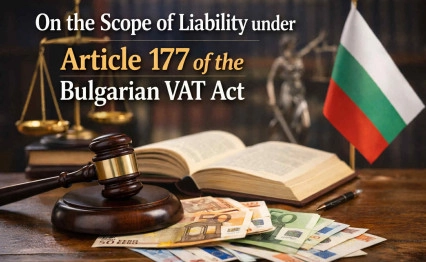
The rise of international investment arbitration claims against Bulgaria
Since 2013, Bulgaria has experienced a significant rise in the international investment arbitration claims against the state in the energy sector. The great majority of these claims have been filed under the Energy Charter Treaty (“the ECT”) and where appropriate under the respective applicable Bilateral Investment Treaties (“BITs”).
It all began in 2009 with the introduction of a new Directive by the European Union (“the EU”) aiming at the production and promotion of energy from renewable sources in the EU. The goal of the Union was to become as “green” as possible by transforming at least 20% of its consumed energy in the form of a renewable one. [1] Naturally, this was to be achieved through the attainment of individual national targets which for Bulgaria was 16%. Thus, many EU countries, including Bulgaria, passed laws aiming at achieving the said goal in their renewable energy sector, by at the same time providing for various incentives in order to attract investments.
Most of these incentives were measures encouraging people to produce and promote renewable energy. Example of such is the conclusion of long term power purchase agreements set out in the Law for Renewable and Alternative Energy Sources and Biofuels,[2] as well as the introduction of the so-called “feed-in tariffs” (“FiTs”) program. The FiTs program provides certain amount of payments to be given to consumers in the form of subsidies for creating and using their own “green electricity”. Consequently, Bulgaria’s accession to the EU along with its acceptance of the Union’s renewable energy goal of reaching 16% consumption by 2020, inevitably led to an increase of investments in the energy sector. It was even estimated that the investments received between 2009 and 2013 made Bulgaria’s clean energy sector the second largest among the top 10 emerging markets.[3]
A problem, however, arisen when the Bulgarian government acting through the National Assembly and the Energy and Water Regulatory Commission (“EWRC”) began to restrict the aforementioned incentives. It adopted variety of laws and regulations introducing new fees and taxes on producer’s income, failed to honor its given guarantees and decreased the FiTs payments. These measures affected the market significantly by changing the legal, regulatory and economic framework within which the renewable energy sector operates.
It furthermore created legal uncertainty and caused negative affects not only to individual consumers, but also to foreign companies who have invested in the State. Thus, since 2013 there are three-pending investor-state arbitration cases against Bulgaria, all of which have arisen out of the legislative changes introduced in the renewable energy sector. [4] It remains to be seen what the outcome of those arbitration proceedings would be and how this would affect Bulgaria and the future of its energy sector.
_______________________________________________________________________________________________
[1] EU Directive on the Promotion of the Use of Energy from Renewable Sources (2009/28/EC, April 23, 2009), available at: < http://extwprlegs1.fao.org/docs/pdf/eur88009.pdf > [2] Law for Renewable and Alternative Energy Sources and Biofuels, prom. SG. 49/19 June 2007 (LRAESB) [3] The PEW Charitable Trust, Power Shifts: emerging Clean Energy Markets, May 2015, p.22, available at: http://www.pewtrusts.org/~/media/assets/2015/05/emerging-markets-report_web.pdf [4] Energo-Pro a.s. v. Republic of Bulgaria, ICSID Case No. ARB/15/19 (under ECT); EVN AG v. Republic of Bulgaria, ICSID Case No. ARB/13/17 (under the Austria-Bulgaria BIT and the ECT); CEZ AS vs. Republic of Bulgaria, ICSID Case No. ARB/16/24) (under the ECT)
[1] EU Directive on the Promotion of the Use of Energy from Renewable Sources (2009/28/EC, April 23, 2009), available at: < http://extwprlegs1.fao.org/docs/pdf/eur88009.pdf > [2] Law for Renewable and Alternative Energy Sources and Biofuels, prom. SG. 49/19 June 2007 (LRAESB) [3] The PEW Charitable Trust, Power Shifts: emerging Clean Energy Markets, May 2015, p.22, available at: http://www.pewtrusts.org/~/media/assets/2015/05/emerging-markets-report_web.pdf [4] Energo-Pro a.s. v. Republic of Bulgaria, ICSID Case No. ARB/15/19 (under ECT); EVN AG v. Republic of Bulgaria, ICSID Case No. ARB/13/17 (under the Austria-Bulgaria BIT and the ECT); CEZ AS vs. Republic of Bulgaria, ICSID Case No. ARB/16/24) (under the ECT)
Share


